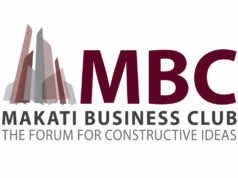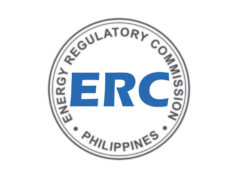OSAKA — In late July, a lavish fireworks display lit up Osaka’s skies in the finale to one of Japan’s most famous festivals, courtesy of a first-time sponsor: Macau casino operator Melco Resorts and Entertainment Ltd.
The company’s chief executive, 41-year-old billionaire Lawrence Ho, had only hours earlier met Osaka’s governor after a donation for natural disaster preparation.
Also in town was MGM Resorts International’s chief executive, Jim Murren. He didn’t bring a donation — just the Blue Man Group to entertain around 100 guests on a chartered boat.
The partying and pageantry were part of a concerted effort to convince Osaka who should operate one of Japan’s first casino resorts. Just days before, the country authorized the initial three licenses.
Thanks to strong local political support, an available site and a supportive business community, the western Japanese metropolis of 2.7 million is widely expected to become the first major city to host a casino.
“Tokyo has not raised its hand, Yokohama has not raised its hand — Osaka has raised its hand,” said Ed Bowers, MGM’s executive vice president of global development.
A huge new revenue stream is on the line for the casino operators, which also include Galaxy Entertainment Corp, Caesars Entertainment Corp, Genting Singapore Ltd and Las Vegas Sands Corp. An Osaka casino could generate $4 billion a year, Morgan Stanley says.
For Osaka, which has seen its wealth and power fade in relation to Tokyo, gambling could boost tourism and bring in much-needed money. It hopes to open a resort by 2024, but even after it picks an operator it must win government approval.
“I want to properly nurture the tourism industry in Osaka as one of its pillars,” Osaka Governor Ichiro Matsui told Reuters in an interview.
Interviews with dozens of casino executives, lobbyists and politicians depict sophisticated campaigns aimed at winning over a skeptical public, wooing local businesses and persuading officials.
And Osaka, eager to avoid even the appearance of corruption, has become more cautious in dealing with casino operators.
In July, the city reiterated a ban on officials’ attending parties, sharing meals or receiving gifts. It also prohibits officials from meeting casino representatives alone.
All told, at least eight major operators are courting Osaka. MGM, Sands and Melco have in recent years pledged to sink $10 billion into a resort.
DREAM ISLAND
Osaka wants to build a casino on a man-made site called Yumeshima, or “Dream Island.”
Yumeshima was built during Osaka’s 1970s boom times. Its bayside area was once a blue-collar district crowded with chemical factories and shipyards. But those companies moved production abroad.
The city was hit hard when Japan’s bubble economy popped, and politicians have for two decades tried with little success to revive both the waterfront and Osaka.
Still, with a four-fold surge in foreign tourists over the last five years — more than 11 million people visited Osaka in 2017, attracted by its rich culinary culture and wealth of nearby sights — casino operators see a fertile market.
“This is the greatest opportunity of my lifetime,” Melco’s Ho told Reuters by phone.
Executives from 11 casino companies have met Governor Matsui for “courtesy calls” 25 times between 2012 and May 2018, prefectural records show. Operators and other related companies have met Osaka officials 119 times since May 2017. Osaka declined to provide breakdowns of meetings by company.
HEARTS AND MINDS
Melco’s most recent donation to Osaka, reported by local media to total about 50 million yen ($450,000), wasn’t its first. Melco also gave money for victims of a June earthquake that killed four in Osaka, and for parts of western Japan devastated by flooding a month later.
The company declined to say how big those donations were; its fireworks sponsorship was worth about $9,000.
Ako Shiraogawa, Melco’s Japan president, told Reuters she reassured local officials the donations were not meant to curry favor. It was a coincidence that Ho met Osaka’s Matsui before the fireworks display, she said.
“It looks like we are doing too much,” Shiraogawa said. “But it just happened to be the same day as the festival.”
Like its Macau rival, MGM is building a bigger presence in Osaka, including an office. It says it is trying to win the “hearts and minds” of the city’s public and businesses. — Reuters



